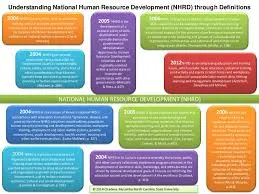Educational resources are important tools the teachers
in their teaching. T hese resources cover all those materials
used in teaching and learning processes. Some of them are
printed materials, sketches, charts, pictures, objects and
machines. A skillul teacher can make some of the materials. He
should also be able to handle the graphic materials and encourage
his pupils to build theirs, AS many materials that are needed
should be collected and kept by the class.
Questioning Skills
One of the characteristics of a skiliul teacher is the successiul use of the questioning technique. Questions are asked and answered throughout a lesson. The art of questioning is not
an easy activity. The reason is that, before the learners can give the answers required by the teacher, the question must be clear and unambiguous. Attimes, the learners give Wrong answers not because they do not know the correct answer but because the question was poorly asked. There are certain guidelines to follow in asking useful question:
(1) The question must be asked before choosing a learner to answer.
(2) The question should be the type that requires a yes' or no
answer only. Such questions are leading question which
does not require much thinking
(3) The learners must be given time to think and the answer.
(4) The learners must not be lorced to answer the question
(5) The question asked must be at the level of the learners
(6) The teacher should make it a praclice to ask his stion
only once. This is how to train the pupils to listen to the teacher at all times.
(7) The question should be straight forward
Humanity Skills
Teaching and learning are activities which take place among human beings including the tecacher and his learners. There is the need for cordial relalionship between the teacher and the leamers. The development of good relationship is not an easy assignment.
However, it is good for many reasons
(1) Agood relationship between the teacher and the learners isa
pivot to the creation of good teaching/learning environment.
(2) It also makes the learners to have interest in the teacher's
lesson.
(3) ltmakes the learners to have confidence in their teacher.
(4)Cases of indiscipline are few in a classroom where there is a
cordial relationship between the teacher and the learners.
The development ot good relationship is a skill to be developed
and utilized by the teacher. He can develop this inter-personal
regard by the following principles.
(1) The teacher must prove that he is out for their success.
(2) Hemust be democratic in the management of the class.
(3) Hemust encourage the pupils to ask and answer questions.
(4) He should reward the pupils when necessary.
(5) He should use appropriate situation to explain issues which the learners know that he cares for them.
(6) He should be sympathetic and kind to his learners.
(7) He should counsel those who have problems.
Classroom Organization Skills
Classroom management among other things involves the arrangements and organization of the classroom facilities and specific routines of handling equipment orderliness and wellbregulated atmosphere. The purpose of classroom organization is
to create an atmosphere of efliciency of both the teacher's and learners, furnishings and teaching resources and other purposes.
The classroom is made up of learners with various backgrounds and characters. The behaviours of these leamers can positively or negatively affect the morale of the classroom. A good Classroom organization aids in controlling the class.
The mode of seating arrangement depends on the classroom size, subject and method of teaching Before the
commencement of the lesson, the teacher must organise himself
He should make sure that all materials are arranged in such a way that they can be casily distributed and collected without disturbing the peace of the class. The organization and co-
ordination of all human and materials resources in a classroom
requires skills. The teacher must have these management skills.
Technical Skills
(1) Diagnose the entry knowledge and skill of students for a
given set of instructional objectives using diagnostic tests.
teachers' observations and student records
(2) Identily long-range goals iora given subject area.
(3) Construct and sequence related short-range objectives for a
given subject arca.
(4) Select, adopt or develop instructional materials for a given
setof instructional objectives and students learning needs.
(5) Establish rapport win Suucis h the classroom by using verbal motivational devices.
(6) Select, develop sequence related leaming
appropriates for a given set ot nstructional objectives
students learming needs.
(7) Present directions for carrying out instructional activities.
Administrative Skills
Establish a set of classroom routines and procedures for utilization of materials and physical movement.
(2) Formulate a standard 1or student behaviour in the Classroom.
(3) Identify causes of classroom misbehaviour and employ a technique for correcting it to maintain discipline.
(4) ldentify and or develop a system for keeping records of class and individual student progress.
Counselling skills
(1) Counsel students both individually and collectively
concening their academie needs.
(2) ldentify and or demonstrate behaviours which reltect a feeling for the dignity and worth of other ethnic, cultural, linguistic and economie groups.
) Demonstrate instructionał and social skills which assist students in developing a positive sell-Concept.
Students in developing their own values, atitudes and beliefs.
(4) Demonstrate instructionał and social skils which assist students in developing their own values, attitudes and beliefs.
